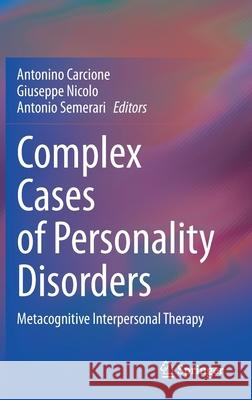Complex Cases of Personality Disorders: Metacognitive Interpersonal Therapy » książka
topmenu
Complex Cases of Personality Disorders: Metacognitive Interpersonal Therapy
ISBN-13: 9783030704544 / Angielski / Twarda / 2021 / 254 str.
Kategorie:
Kategorie BISAC:
Wydawca:
Springer
Język:
Angielski
ISBN-13:
9783030704544
Rok wydania:
2021
Wydanie:
2021
Ilość stron:
254
Waga:
0.55 kg
Wymiary:
23.39 x 15.6 x 1.6
Oprawa:
Twarda
Wolumenów:
01
Dodatkowe informacje:
Wydanie ilustrowane











